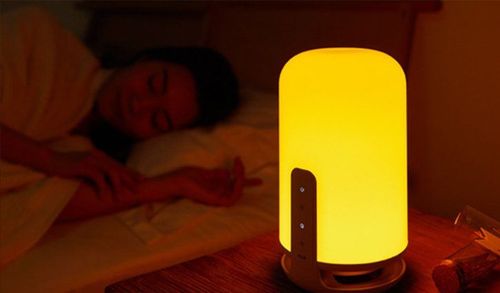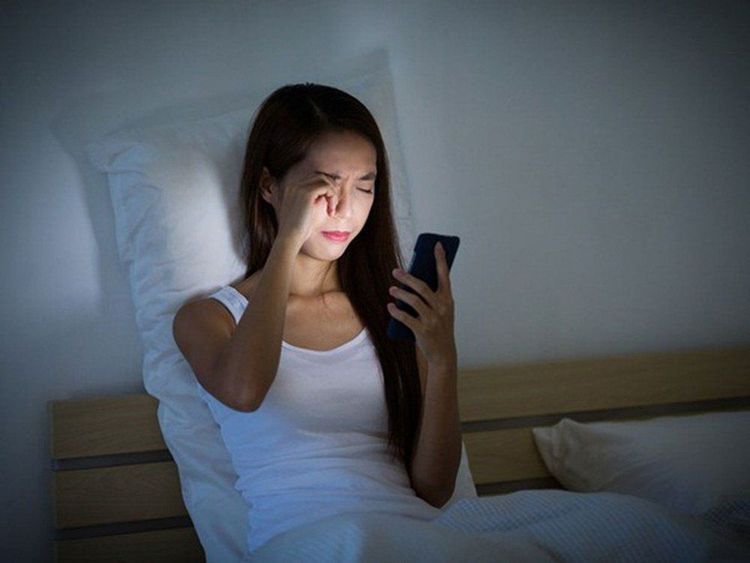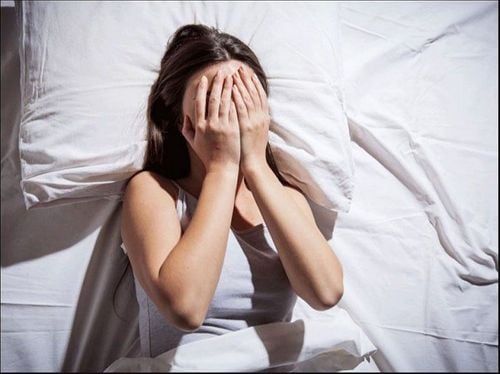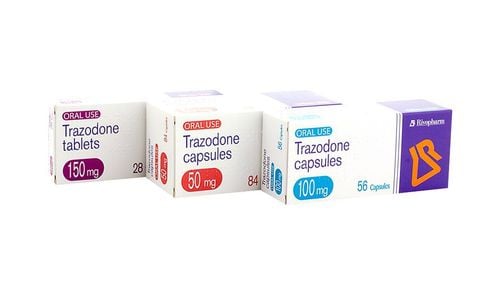This is an automatically translated article.
Many people still have the habit of turning on the night light. Some people choose yellow night light, some people choose blue, and some people like red or white light. However, which light is good for sleep is always a question of many people. The following article will tell you the best light colors for sleep.
1. Benefits and risks of light for sleep
Light from a night light is very helpful for people with a fear of the dark. This condition is common in children but can occur at any age.
If turning on a night light helps a person fall asleep easier and sleep better during the night, this could support overall health. Because lack of sleep can increase the risk of several chronic diseases, such as type 2 diabetes, depression, cardiovascular disease and obesity. Some research also shows that light therapy using a blue night light can improve sleep quality and ease symptoms of depression.
On the contrary, some potential downsides of turning on a night light for children is that they may become dependent on the night light for sleep as they get older. For adults, the habit of sleeping with a night light will cause trouble if they sleep with other people. In addition, night lights can emit light wavelengths that affect sleep by reducing the amount of Melatonin - a hormone that helps induce sleep.
2. Which light is good for sleep?
Many people still have the habit of turning on the night light. Some people choose yellow night light, some people choose blue, and some people like red or white light. However, which light is good for sleep is always a question of many people. Around the world, there have been a number of studies on the impact of different light colors on human sleep cycles. The body's natural sleep-wake cycles are largely controlled by a hormone called melatonin. Specialized photoreceptors in the eye send information back to the brain and influence the body's production of melatonin. These receptors are most sensitive to light with wavelengths between 450 and 480 nanometers (nm). And for most people, this light is blue. In contrast, a number of other studies point to evidence that warm colors can help lull people to sleep faster than colors. cold.Some evidence suggests that red light can help induce sleep, significantly improving sleep quality and melatonin levels. It is also thought that colors close to red on the light spectrum can stimulate melatonin production. However, at this point, more research is needed to support this theory.

Ánh sáng đèn ngủ màu vàng có thể giúp bạn dễ đi vào giấc ngủ hơn
There is much literature that blue light can have a negative effect on the body's melatonin levels, which in turn will negatively impact sleep quality. Electronic screens, fluorescent lights, and LEDs can all contain blue light. Exposure to green and purple light may also interfere with your ability to fall asleep, but more research is needed to fully understand their effects.
Especially infants and children also seem to be negatively affected by blue and white light before bedtime. That's why warmer colors are often recommended for night lights. However, the researchers found that children had more melatonin suppression than adults when the night lights were on, and that children's melatonin levels were suppressed even more when exposed to yellow nightlights. Purple light can have the same effect as blue light. However, until now there have been no studies on the effects of violet light on humans. In addition, there is some evidence that personal preference for nightlight color may also play a role in sleep.
3. What elements in the bedroom can help you sleep better?
Many factors can affect the quality of your sleep. Accordingly, in order to get a good night's sleep, you need to avoid bad habits and do well the following habits: Bad habits to avoid before going to bed:Exposure to electronic screens, for example such as phone or television, before going to bed. Drink caffeine at the end of the day. Drink plenty of water before sleeping. Drink alcohol before bed Eat well before bed Go to bed and wake up at irregular times. Lots of naps during the day.

Bạn nên hạn chế tiếp xúc với màn hình điện tử trước khi đi ngủ
Good habits that can improve sleep:
Go to bed at the same time every night. Wake up every morning at the same time. Exercise regularly. Sleep on comfortable pillows and mattresses. Do something relaxing before going to bed. Suitable bedroom temperature. Make sure the bedroom is quiet, dark and relaxing. Also, don't use devices such as televisions, laptops, tablets or cell phones in the bedroom.
Quality sleep is very important for health. Therefore, you should apply the above ways to have a full sleep, protect the immune system, regenerate energy to start a new day full of vitality.
Follow Vinmec International General Hospital website to get more health, nutrition and beauty information to protect the health of yourself and your loved ones in your family.
Please dial HOTLINE for more information or register for an appointment HERE. Download MyVinmec app to make appointments faster and to manage your bookings easily.
Reference sources: healthline.com, medicalnewstoday.com












